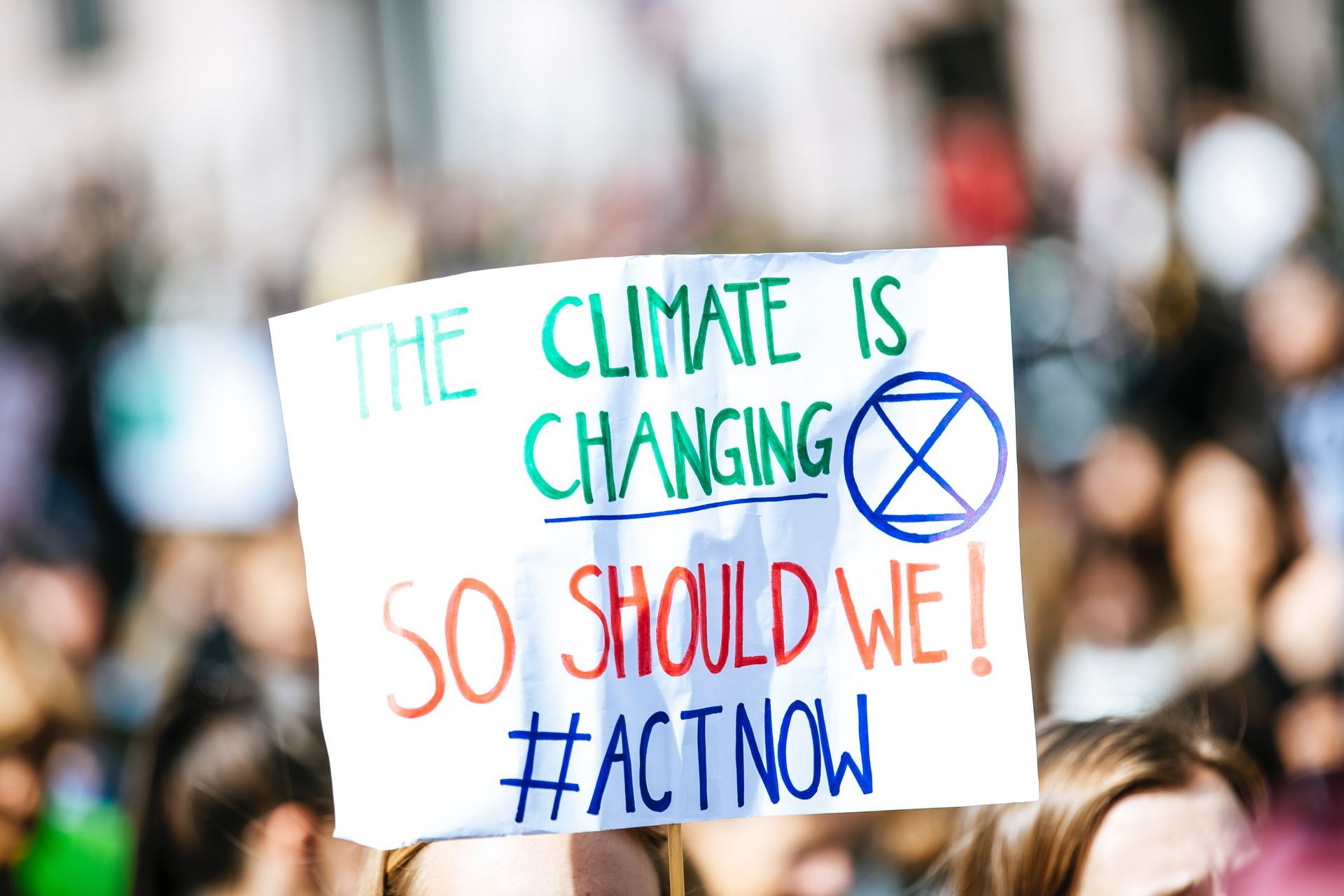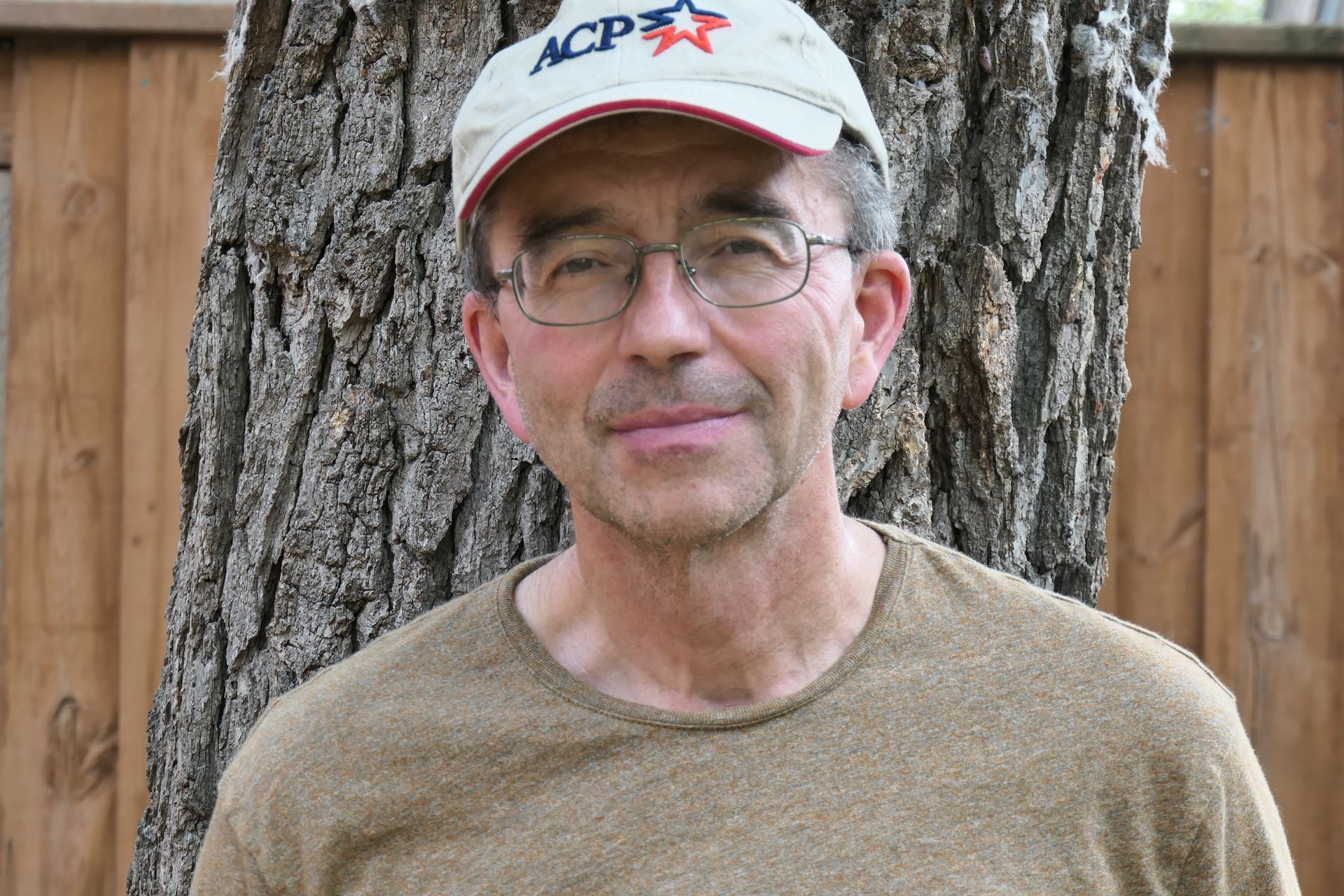
Global climate change strike. Photo by Markus Spiske on Unsplash
You could be forgiven for thinking that the world has forgotten all about climate change in the face of the immediate, made-for-Hollywood crisis of COVID-19. Commentators and climate scientists clearly feel the neglect [1] and in response they’ve generated their own minor epidemic of articles and blogs comparing the pandemic to climate change.
These commentaries have appeared in forums as varied as Yale Environment 360 [2], World Economic Forum [3], The Conversation [4, 5], and the CBC [6]. They draw loose parallels between the dynamics of climate change and COVID-19, and conclude that humans only respond to a threats after it’s become a crisis [6]. Some go further, asserting that our handling of the pandemic holds lessons for how we can deal with climate change. One claims our collective response to Covid-19 "proves" we can act rapidly to reduce global warming [5].
Such hopeful comparisons seem overdrawn.
Climate change and the COVID-19 pandemic are different types of crises and they develop at different speeds. Thinking about them triggers different psychological reactions. Both are complex problems, but in scale and complexity, the challenge of climate change greatly exceeds that of COVID-19. These differences lead to disparities in the ability (and willingness) of governments and individuals to influence their outcomes. In fact, our response to the virus may teach us more about how not to tackle the climate crisis than about how to address it.
Speed meets psychology
Relative speed is the most obvious variable separating COVID-19 from climate change. The virus surprised the world with its rapid onset and the breakneck pace with which it challenged and sometimes overwhelmed national health care systems. Climate change, by contrast, is a slow-burn crisis, at least from the human point of view. The policy response to climate change has been even slower.
Our approach to climate policy could be compared to the pre-World-War-II appeasement of Hitler by Britain’s government. Throughout the 1930s, the Brits continued hoping for the best while conspicuously failing to prepare for the war everyone knew was coming. Does that sound like the last 30 years of climate negotiations to you?
With COVID-19, however, war has arrived. The Blitz of consequences is upon us. The emergency could not be clearer. People are dying and our medical defenses are stretched to the breaking point. Governments must react.
The speed and immediacy of a crisis directly affects our psychological response to it. COVID-19 could kill you by this time next week. It’s the sabre-tooth tiger hidden in the grass, which triggers our deepest and most ancient fears. Collectively, we’re fighting it with everything we’ve got. Individually, we understand the need to avoid the existential threat. So, most of us cooperate with public health measures, hide out in our apartments, and practice social distancing.
By contrast, psychological barriers to climate action hinge on people seeing it as an abstract problem whose consequences always lie somewhere in the future. These barriers are personal, collective, and political. They’ve managed to thwart policies and actions to combat climate change for the last 30 years. The psychologist Robert Gifford calls these “the dragons of inaction” [7]. The dragons include ignorance of consequences and causes of climate change, numbness in the face of its all-encompassing complexity, misunderstanding scientific uncertainty, and of course, good old denial.
Complexity and management
The emergency response to COVID-19 is unprecedented and has jolted the global economy. Managing the health of infected patients is medically and administratively complex. However, the pandemic presents us with a well-defined, singular challenge. We understand its characteristics and can tackle it with a fairly limited set of established technologies.
Climate change, on the other hand, engages the entire Earth System in a dizzyingly complex set of positive and negative feedbacks involving the biosphere, water and weather, ocean currents and ice, atmospheric dynamics, and the human economy. The technologies, policies, and long-term strategies needed to mitigate climate change are quite different to those needed to resolve COVID-19. Some of them have yet to be invented.
Which brings us, inevitably, to the issue of control. Our success at controlling the spread of the pandemic has been patchy, to say the least. But in principle we could have limited the spread of the virus with tighter border controls, more resilient health care systems, and better communications.
Climate change is a borderless, planet-wide challenge that demands extraordinary international cooperation. Such cooperation may not currently be geopolitically feasible [8]. And, speculation about geoengineering notwithstanding [9], many aspects of the global climate and carbon cycles will forever be beyond human control. Meeting this global challenge requires a wholesale transformation of our economies, of society, and our relationship with the Earth. It’s a fact many political leaders still seem unwilling to face.
Lessons learned?
A few encouraging lessons from COVID-19 might be applied to climate change. We have rediscovered that when the chips are down, we can take extreme action to tackle a crisis. We now understand there’s a critical time lag between the causes (viral transmission, latent cases) and effects (spikes in mortality, overwhelmed health systems) of COVID-19. The USA and UK discovered, belatedly, that procrastination during this time lag would only make the crisis worse.
Climate scientists understand there are multiple such lags between cause and effect built into the climate system. We must not be forced to experience the consequences of these lags for climate change, because a few more years of procrastination will close the narrow window of opportunity that remains for effective action.
Sadly, it seems the potential lessons of COVID-19 for climate policy could be lost in the rush to restore business as usual. Many fear that our obsession with the pandemic and subsequent economic recovery could eclipse environmental concerns for years. Even as oil prices crash, the governments of the USA, Canada, and Alberta are spending billions of dollars to shore up shale oil, oilsands, and pipelines [10]. And in a mute commentary on our current priorities, the venue for a critical round of UN climate talks in November has been converted to a hospital for COVID-19 patients [1].
Citations
- Hook, L. and A. Wisniewska (2020). How coronavirus converns completely shut down talk of climate change. Financial Post The Financial Times Ltd. <https://business.financialpost.com/news/economy/how-coronavirus-concerns-completely-shut-down-talk-of-climate-change> Accessed Apr 28, 2020.
- Gardiner, B. (2020). Coronavirus holds key lessons on how to fight climate change. Yale Environment 360 Yale School of Forestry and Environmental Studies; Mar 23, 2020. <https://e360.yale.edu/features/coronavirus-holds-key-lessons-on-how-to-fight-climate-change> Accessed Apr 27, 2020.
- Wyns, A. (2020). How our responses to climate change and the coronavirus are linked. World Economic Forum; Apr 02, 2020 <https://www.weforum.org/agenda/2020/04/climate-change-coronavirus-linked/> Accessed Apr 27, 2020.
- Chassagne, N. (2020). Here’s what the coronavirus pandemic can teach us about tackling climate change. The Conversation [Online article]; Mar 26, 2020 <https://theconversation.com/heres-what-the-coronavirus-pandemic-can-teach-us-about-tackling-climate-change-134399> Accessed Apr 27th, 2020.
- Galbraith, E. and R. Otto (2020). Coronavirus response proves the world can act on climate change. The Conversation Mar 23, 2020 <https://theconversation.com/coronavirus-response-proves-the-world-can-act-on-climate-change-133999> Accessed Apr 27, 2020.
- Gunton, T. (2020). COVID-19 has laid bare how unprepared we are for crises — and climate change will test us even more. CBC: Opinion Canadian Broadcasting Corporation; <https://www.cbc.ca/news/canada/british-columbia/covid-19-climate-change-crisis-opinion-1.5554971> Accessed May 07, 2020.
- Gifford, R., The Dragons of Inaction Psychological Barriers That Limit Climate Change Mitigation and Adaptation. American Psychologist, 2011. 66(4): p. 290-302.
- McGillis, J. (2020). No, Coronavirus Is Not a Climate-Change Preview. National Review Apr 22, 2020 <https://www.nationalreview.com/2020/04/coronavirus-pandemic-climate-change-very-different-crises/> Accessed Apr 27, 2020.
- Ackland, G.J. and A.J. Wood, Emergent patterns in space and time from daisyworld: a simple evolving coupled biosphere-climate model. Philosophical Transactions of the Royal Society a-Mathematical Physical and Engineering Sciences. 368(1910): p. 161-179.
- Dembicki, G. (2020). This Energy Analyst Says the Oilsands Are ‘Done’. The Tyee, May 11, 2020 <https://thetyee.ca/News/2020/05/11/The-Oil-Sands-Are-Done/> Accessed May 12, 2020.
By: Andrew Park PhD

Andrew Park was born and raised in the United Kingdom and has lived in Canada for almost 30 years. He obtained his BSc at Simon Fraser University before completing his MSc and PhD in Forestry at the University of Toronto. He completed his post-doctoral studies at the University of Quebec and has worked at the University of Winnipeg since 2004.
Andrew has done forest research in Canada, Mexico, Panama, Bolivia, and Malawi. Aside from his areas of expertise, Andrew's research interests include sustainability, environmental ethics and philosophy, and Canadian Natural Resources Policy.
